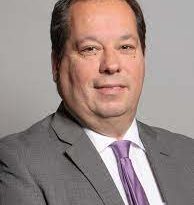Baroness Tonge – 2016 Parliamentary Question to the Department for International Development
The below Parliamentary question was asked by Baroness Tonge on 2016-02-02.
To ask Her Majesty’s Government how they will help to ensure that women have access to family planning throughout Latin America and the Caribbean in the light of the spread of the Zika virus and its potential link to birth defects.
Baroness Verma
The importance of comprehensive Sexual and Reproductive Health and Rights for all women is brought home by the emergence of Zika. There may be increased demand for voluntary rightsbased Family Planning from women in affected countries seeking to avoid pregnancy, and there is a risk of a rise in unsafe abortion in some countries. DFID has a track record of promoting rights based family planning and in highlighting the contribution safe abortion makes to saving women’s lives.
We are in close contact with DFID-funded partners, including in the UN system and civil society, active in affected regions and will continue to do all we can to support their efforts. The Government is determined to support the international community in responding to the Zika virus. The UK has been at the forefront of global efforts to ensure the World Health Organisation (WHO) has the funding, expertise and systems to respond to emerging disease threats like Zika. We are the second largest national funder of WHO and have also provided political and technical support to strengthening the organisation and its preparedness. As part of the UK effort to strengthen global health security DFID contributed £6.2 million to WHO’s contingency fund for emergencies which is available for the management of Zika.
Affected countries are working closely with the Pan American Health Organisation (PAHO) which serves as the Regional Office of the World Health Organisation. PAHO and governments across the region are issuing information on the emerging Zika infection. DFID will keep under review its support to countries affected by Zika viral infections and along with other Government Departments we welcome the WHO emergency committee statement issued on Monday 1st February.


